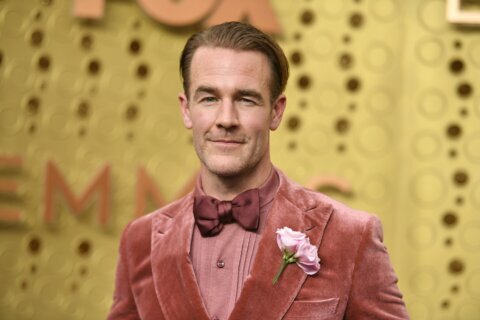This is Part 1 of our Black History Month series saluting D.C. difference makers.
She made double history as the first woman to head the Library of Congress and the first Black person to lead the institution since its founding 221 years ago in 1800.
And yet, Carla Hayden isn’t content with making history — she also wants to shape it.
“To be at the nation’s largest library, a person of color from a background where people who looked like me were forbidden by law to read, to be the first woman to be Librarian of Congress, I just get chills,” Hayden told WTOP. “To open up the treasure chest of the Library of Congress and get people excited about the future and history, it’s an honor.”
Hayden was born on the historically Black campus of Florida A&M University. Her parents worked in the music department before moving to New York and Illinois.
“Even though I had no musical talent, words and reading were my way to relate to the world,” Hayden said. “I realized librarianship was a profession in Chicago, I went to library school, taught in Pittsburgh and settled in Baltimore to head the library system.”
In 2016, she was appointed the Librarian of Congress, bringing a daily commute from Baltimore to D.C. that provided plenty of time to ponder ways to reshape the institution.
Her latest mission was securing a $15 million grant from the Andrew W. Mellon Foundation to launch the new diversity initiative “Of the People: Widening the Path,” connecting with Black, Hispanic, Indigenous and other minority communities.
“It’s the largest [grant] from an individual foundation [that we have ever received],” Hayden said. “For the Mellon Foundation itself, it’s the largest grant that they’ve given. They’ve really been excited about providing opportunities for cultural institutions to include the stories and the histories of more people. That’s what the initiative is.”
The exciting diversity initiative will be accomplished through three main programs.
First, it will invest in community-based documentarians from new perspectives.
“The library’s American Folklife Center will fund and support individuals and organizations who are collecting and archiving … to produce documentation about their cultures,” Hayden said. “We’ll have oral history interviews, audio-visual recordings. … They will be part of the American Folklife Center collection.”
Second, it will fund paid internships and fellowships to spark the next generation.
“I emphasize paid internships,” Hayden said. “We’re going to reach out to students from minority-serving institutions, including historically Black colleges and universities, Hispanic-serving institutions, Tribal colleges and universities, Asian Americans and Pacific Islanders. … Hopefully some will go forward and actually become archivists.”
Finally, it will create a range of digital engagements with underserved communities.
“The Black, Indigenous and Minority Americans Digital Futures Program is exciting,” Hayden said. “We’re going to encourage them to use technology and have creative approaches modeled after a program we already have, Citizen DJ, where you mix things together, photographs, film, to make something engaging in the digital realm.”
Overall, the goal is to make the Library of Congress more accessible and relatable.
“Having a person that looks like me, the first woman of color, you’re not an outsider; your story belongs in the Library,” Hayden said. “You need [to say], ‘Hey, here’s some gaps, here’s some things we need to put in.’ … When you think about who tells history, who writes history, we want to make sure there are people from all backgrounds.”
After the U.S. Capitol siege, she hopes the Library of Congress can open eyes.
“If there was ever a time that we needed to learn about each other and make sure that all stories are being presented … this is the time,” Hayden said. “Recent events have shown us that history can provide context. … It can also help with empathy.”
In the end, she believes the old adage that “knowledge is power.”
“The common thread is the belief in reading and information,” Hayden said. “Frederick Douglass said it best, I think: ‘Once you learn to read, you will be forever free.'”
Find out how you can participate in the diversity initiative on the library’s website.








